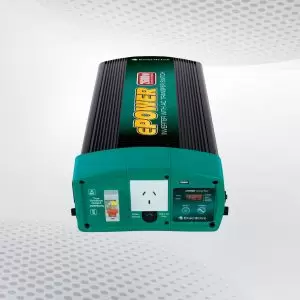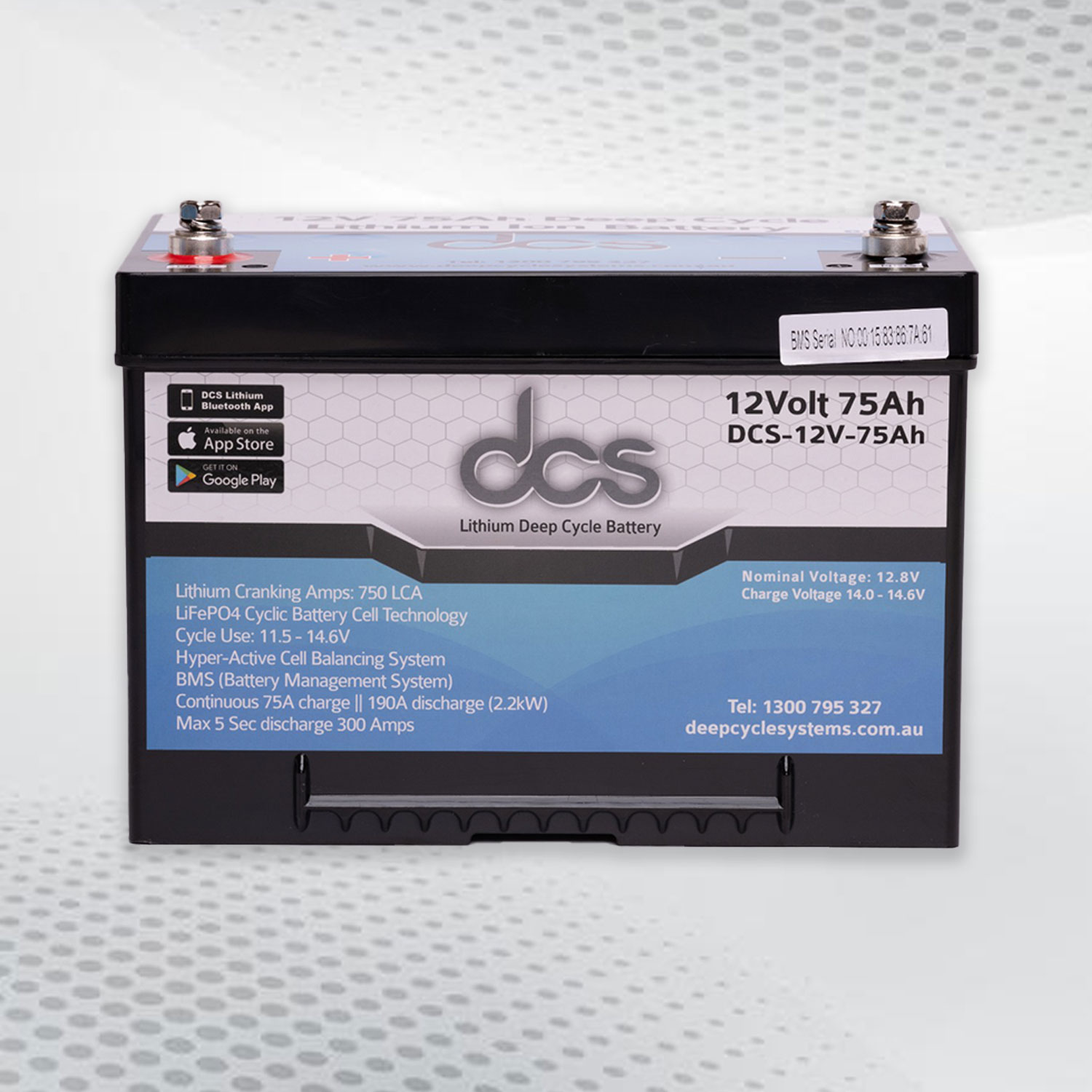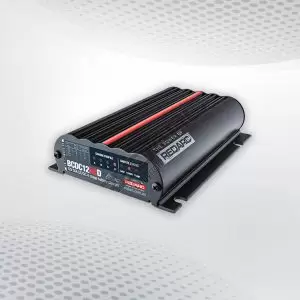Lithium Battery Chargers (LBCs) are a key part of an off-grid energy system. They are used to charge the batteries that provide power for homes and businesses and many other applications such as electric vehicles (EVs), boats, aeroplanes, and more. Depending on its function, a lithium battery charger converts the DC output from a solar or wind generator into AC power at various voltages.
The 12V 24V 36V and 48V Lithium Battery Chargers
Lithium battery chargers are used to charge lithium-ion batteries, iron phosphate batteries, and manganese batteries. These devices can be used to charge many types of lithium batteries.
Lithium batteries are commonly used in electronics and electric vehicles. They have many advantages over other types of batteries, such as longer lifespan and lighter weight.
Lithium-ion batteries are used in many devices, including cell phones, laptops and tablets. They have become popular in the past decade because they can store much energy in a small space and last longer than other batteries. Lithium-iron phosphate batteries are often used to electric power vehicles.
 Components of LiFePO4 Battery Chargers
Components of LiFePO4 Battery Chargers
A LiFePO4 battery charger is a device that converts DC power into AC power for charging your LiFePO4 batteries. The charger should have the following components:
- A voltage regulator that steps down the input voltage to a safe level for charging
- A current limiter, which limits how much current can flow through your battery during charging (and protects it from overheating)
- A temperature sensor helps ensure you don’t overheat or burst an internal component. This sensor also helps prevent fires in case of accidents or abuse by providing early warning signs when temperatures get too high or low.
How does the Lithium DC DC Charger work?
Lithium battery chargers work by converting the AC power source into DC power. The Lithium DC DC Charger then charges the batteries by delivering current to them.
The majority of lithium battery chargers use this type of converter called a buck converter, which is normally found in computers, laptops and other electronic devices that need to charge a variety of different types of batteries.
A PWM solar charge controller is another lithium battery charger that can be used if you have an existing solar system or want to install one at your home or office. So that it can generate electricity from sunlight and convert it into usable power for yourself or others who live with you inside your dwelling space.
Types of lithium battery chargers
There are three main types of lithium battery chargers:
12V lithium battery chargers.
- These charge small, low-voltage batteries, such as those found in toys and electronics. They can be powered by a car, boat or another vehicle (12-volt is the standard). The 12V model has a maximum output of 2 or 3 amps, which means it can’t handle too much power and will burn out if you try to run it at full capacity. It’s best suited for charging cell phones, MP3 players and other small devices that don’t require much power but still need some sort of backup battery when they run out of juice during an emergency, like being stranded at sea without any way to charge your phone!
24V lithium battery charger.
- This type of device works best with larger lithium batteries like those used in cars because it has more amperage available than its smaller counterpart – up to 20 amps! If you have an older vehicle without updated electronics installed inside, then this may be the only option available since many newer models are made using newer technology than what was available back when these vehicles first came out into production decades ago; however, there should still be plenty left over after charging both sides.
Lithium Battery Chargers for Bikes, Cars and Boats
Lithium battery chargers are used to charge lithium batteries. LiFePO4, LiPo and LiFe batteries have different characteristics, so they need specific lithium battery chargers to charge each type of battery.
A lithium-ion (Li-ion) (LiPo) battery is an electrochemical cell that derives its energy by intercalating Lithium-ions between layered materials in the cell’s cathode [in the forward direction]. This process is called intercalation. The most common electrode materials are Lithium Cobalt Oxide for high-power density applications and graphite for low-cost applications such as electric vehicle batteries.
Customized Lithium Battery Charger
For a customized Lithium Battery Chargers, companies will provide you with professional advice, design and production. Companies can also customize the products according to your requirements. In addition to the common SLA/AGM/GEL/lead acid batteries for cars, bikes, boats and special applications, companies also offer specific solutions for various industries such as solar power generation systems, UAV batteries etc.
The products are widely used in many industries, including transportation, electric vehicles, marine electronics, solar power systems and other fields. Please contact us anytime if you need a customized lithium battery charger or other related products.
The lithium battery chargers are high quality and meet special requirements, even for the most demanding environments.
The lithium battery chargers are high quality and meet special requirements, even for the most demanding environments. Companies have a wide range of lithium battery chargers for different applications. Companies can customize the lithium battery chargers to meet your specific requirements.
If you are interested in the lithium battery chargers, please contact us.
Why you need a Lithium DCDC Charger (LBC)
You’ll need a lithium battery charger if you want to use lithium batteries. This is because it’s impossible for lithium batteries to self-charge. The voltage required for charging the battery is too high for it to be generated by natural currents in nature or by rubbing them against each other. A Lithium DCDC Charger generates the higher voltage needed by your batteries so they can be charged and used as power sources again.
Lithium Battery Chargers come in all shapes and sizes: 12V, 24V, 36V and 48V models are available depending on your specific needs (i.e., the size of your project).
How LiFePO4 batteries work
Lithium batteries are a type of rechargeable battery that is commonly used in electric vehicles, power tools and portable electronics. LiFePO4 batteries are a type of lithium battery that has a longer lifespan than other types of lithium batteries.
LiFePO4 (lithium iron phosphate) batteries are the most common type of lithium-ion battery used in electric bikes and scooters.
Converting the output of a PWM solar charge controller to selectable voltages using a buck converter
A buck converter is a device that steps down voltages, converting a higher voltage to a lower voltages. The following video demonstrates how a buck converter works.
The PWM solar charge controller can be used to control the output voltage of the battery charger. Using this method, you can select the voltage you want from your battery charger by using just one switch instead of having multiple switches for each voltage setting.
Conclusion
Please remember that these are my opinions based on my experience with various solar chargers and batteries over the years. As such, they are subject to change as time goes on, allowing me to make changes where necessary (and fallible human nature is inherently flawed).
Also, I’ve been known to rant against certain companies/products here – apologies in advance for any mistreatment you may receive from your eyes rolling up into your head like a dying snail.
48 V Lithium chargers are devices that are used to charge lithium ion batteries. These LiFePO4 battery chargers play a vital role in the maintenance and operation of devices that use lithium ion batteries. A lithium battery charger is an electronic device that is used to put energy into a lithium ion battery. It restores the energy by transferring it from another source, such as the wall outlet or another lithium battery charger. 48v lithium battery charger hasmany advantages that make them stand out from other types of battery chargers. They are convenient, efficient, safe, and reliable. Let’s take a look at some of the top benefits of a lithium charger.
 Easy to use and portable
Easy to use and portable
Lithium battery chargers are very easy to use and portable. You can easily use them to charge your batteries without any hassles. They are easier to operate, especially when compared to other types of chargers.Our 48v lifepo4 battery charger is portable. You can easily carry them to various places since they do not consume much space. Additionally, you can use them for several hours without having to plug them into an outlet. This makes them more convenient to use. Lithium ion chargers are lighter compared to other chargers. This makes them more portable and convenient to use. Whereas other chargers are larger and consume more electrical energy, lithium ion chargers are more efficient in charging batteries.
Safer option for charging lithium ion batteries
Lithium ion chargers are safer compared to other types of chargers because they do not produce sparks. This makes them a safer option for charging lithium ion batteries. Lithium ion batteries are usually charged with special chargers. These chargers are also known as lithium ion chargers. Lithium ion chargers charge lithium ion batteries by passing a small current through the battery. This current initiates a chemical reaction, which then results in a buildup of electrons inside the battery. This process restores the energy in the battery. This process is not the same as electrostatic discharges that produce sparks. This is why lithium ion chargers are considered safer than other chargers. Moreover, lithium ion chargers also detect faults, such as short circuits, reverse polarity, and over-voltage. This prevents potential hazards, such as fire and explosion, while charging batteries.
Environmentally friendly
Lithium ion chargers are environmentally friendly. They use less energy compared to other types of chargers, which results in lower carbon dioxide emissions. Additionally, they do not use toxic chemicals, such as cadmium, lead, and mercury. There are various types of lithium ion chargers available in the market. Some of them are designed to charge lithium ion batteries while others are designed to charge Ni-Cd and Ni-MH batteries. You can select any of these types of chargers depending on the type of batteries you have. When you charge lithium ion batteries, the chemicals in the batteries react with each other to produce electricity. There are two main chemicals inside the batteries: Lithium and oxygen.
Can charge different types of batteries
Lithium ion chargers can charge different types of batteries, such as lithium ion, Ni-MH, Ni-Cd, and SLA batteries. Lithium ion chargers are designed to charge lithium ion batteries. They are usually used for charging smartphones, laptops, tablets, and other portable devices. Lithium ion chargers can charge Ni-MH and Ni-Cd batteries. They can also charge SLA batteries up to a certain extent. In fact, they are one of the best chargers to charge SLA batteries. A 48 volt lithium ion battery charger can charge different types of batteries because they are intelligent chargers. These chargers have sensors that can detect the type of battery that is being charged. If the batteries are not inserted correctly, the sensors will automatically detect the error.
Detects faults while charging
Lithium ion chargers detect faults while charging. It means that the charger will automatically stop if there is a problem while charging the battery. This feature is not available in other types of chargers. In fact, some types of chargers do not even have a functionality to detect faults. This is why lithium ion chargers are more reliable and efficient compared to other types of chargers. Our 48v lithium ion battery charger is equipped with microprocessors that are responsible for detecting faults. They constantly monitor the voltage, current, and temperature of the battery. This allows them to detect faults, such as short circuits, reverse polarity, and over-voltage.
Fast charging capability
Lithium ion chargers have a fast charging capability. They can charge batteries at a much faster rate compared to other types of chargers. In fact, they can charge batteries up to three times faster than other chargers. This is because lithium ion chargers use constant current and constant voltage to charge batteries. These charging methods allow lithium ion chargers to charge batteries faster. Constant current charging applies a constant current to the battery that is similar to its current rate when it is being charged. It also applies a voltage that is lower than the voltage required to charge the battery. Constant voltage charging applies a constant voltage that is higher than the voltage required to charge the battery. This is a safe method because it does not allow the current to exceed the maximum limit.
Convenient to use
Lithium ion chargers are very convenient to use. In fact, the process of charging batteries with lithium ion chargers is similar to the process of charging batteries with wall plug-in chargers. You can use any lithium ion charger to charge batteries. You just need to select the correct charging mode, voltage, and current. You can select any of these modes depending on the type of battery you have. Lithium ion chargers are compatible with any type of battery that uses lithium ion. They are safe to use and can charge the battery quickly. Lithium ion chargers charge the battery with a constant current and a constant voltage. This is the safest way to charge batteries because it avoids overcharging.
Summary
Lithium battery chargers are devices that are used to charge lithium ion batteries. They play a vital role in the maintenance and operation of devices that use lithium ion batteries. Lithium ion chargers are convenient, efficient, safe, and reliable. They are easy to use and portable, safer option for charging lithium ion batteries, environmentally friendly, can charge different types of batteries, detect faults while charging, fast charging capability, and convenient to use.
Related Website
Articles on moblogs
Articles on skankblogs
Articles on blogseu
Articles on garciasblogs
Articles on allcityforums
